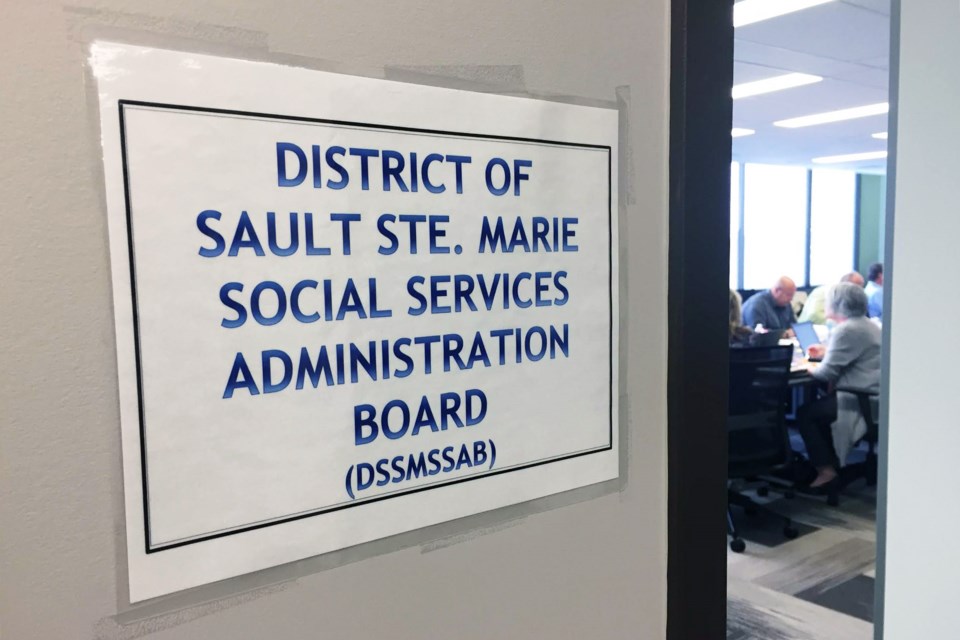Now that it has severed itself from the city, the local District Social Services Administration Board (DSSAB) is implementing a complete change in its corporate culture — and a simplification of its name.
Mike Nadeau, chief administrative officer for the local DSSAB, described the organization’s identity problem during a board meeting last night.
“We call ourselves the District of Sault Ste. Marie Social Services Administration Board — nobody in the community knows what that means,” said Nadeau.
Instead, the board voted to adopt Social Services as their new public identity, which Nadeau said will be much simpler for the general public to grasp.
The new identity will also include an Ojibwe translation — Ashangewinini Danakamigad.
The Ojibwe translation was made in collaboration with local First Nations groups, said Nadeau.
While the french translation — Services Sociaux — is required by law, Nadeau said the ojibwe translation was made, ‘to say to that specific target group the they are welcome.’
The name change is the result of an organizational and service review of the DSSAB that began in 2014 and was completed in May of 2015.
The change was not implemented at the time, said Nadeau, once it became obvious the DSSAB was going to split from the city.
“Now that we have done that transition, it was time to start looking at the corporate identity again,” said Nadeau.
As part of the overall change in branding, the organization is moving toward including more icons over words, in effect becoming more accessible to people with literacy issues who use its services, such as childcare, social housing and Ontario Works.
The organization also plans to move away from forms to using small cards, making it simpler for those using the services to communicate the specific assistance they need.
The study was conducted first by speaking to those using social assistance, then to the front line workers and lastly speaking to management.
“There is a lot of stigma attached to receiving our services. It’s up to us to be the leader to make sure we are being that change agent to reduce the stigma,” said Nadeau.
The study identified the organization’s current culture as one of ‘good luck with that’ and seeks to change it to ‘we got your back’.
In May of 2015, said Nadeau, there were approximately 2,500 people on Ontario Works in the Algoma District, with only 409 jobs available.
“That included directors, and VPs at OLG, CEOs — that included job openings that someone on social assistance is theoretically never going to get immediately,” said Nadeau.
